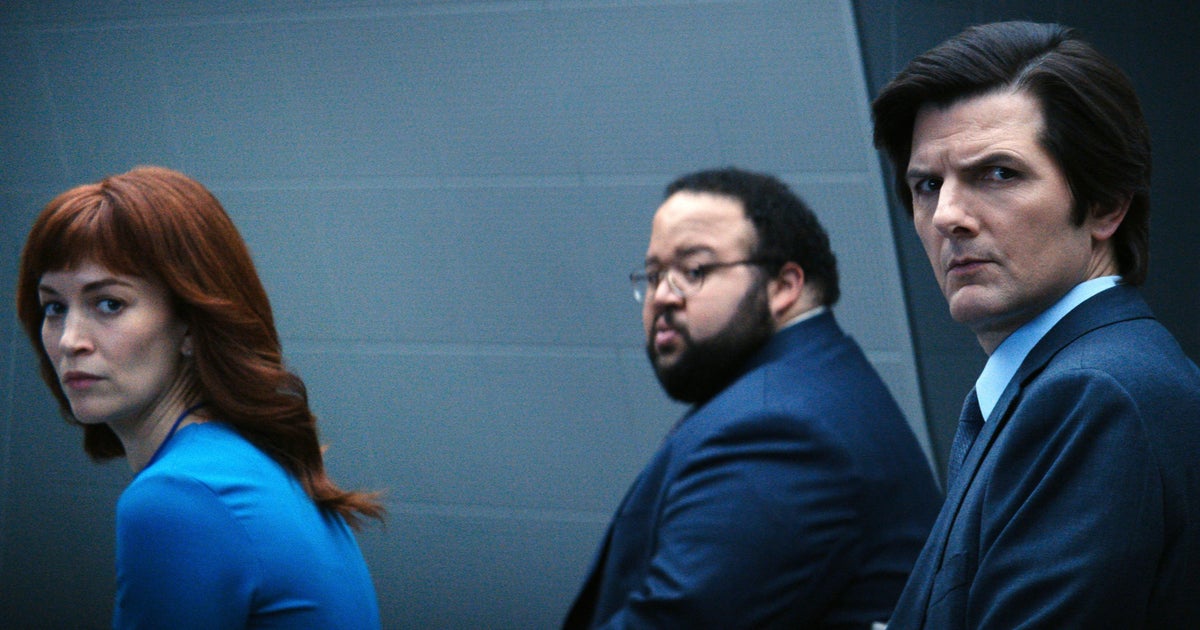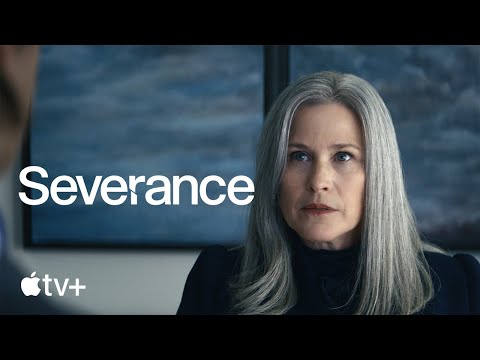I don’t think Severance would necessarily make a good video game, but every episode I watch makes me think about games. More specifically, it makes me realise what games do better than every other medium.
Disorientation: it’s a major theme in Severance. From the beginning, we, as an audience, long to know what’s going on. That’s the major compulsion loop in the series, figuring out what the purpose of Lumon Industries is, it’s also the major motivation for the characters in it. What is the purpose of their number crunching? What are they working towards?
What the series does so well, beyond being so well put together, so surprisingly funny and touching and absurd, is withhold information. The whole premise is that you can split one person into two people. You can put a chip in someone’s brain that means they can be one person at work and another outside of it, and that you can keep those two people forever, permanently, apart. One cannot recall details about the other. Separation. Severance.
We experience this disorientation separately in each version of the character: the one who drives to work and drives home, and the one who works at the company and exists in the time between. We follow, in particular, the Innies as they’re called – the people inside the company – as they come to terms with their existence and start to push at the boundaries of it, start to explore corridors they’re forbidden to explore. Start to see, as we do in the game Portal, I suppose, what’s behind the set – what we’re not supposed to see.
But it’s always second hand. We are never, as in Portal, the people experiencing it for ourselves. We always read the impact of the revelations through the characters’ reactions, or hear them in their words. We can never be, as we can in a game, them. We can never be Mark S and gang exploring those clinical white corridors for ourselves, chased by regulations, pen-pushers and rules. And we can never feel the disorientation of the severance procedure, of being one person one moment, and another the next.
This thought reminds me sharply of Before I Forget, a game about being a person living with dementia. This does attempt to show us what it’s like to experience something ourselves. The house rearranges around us, and objects in our house are strange and incomprehensible. The life we once lived has become increasingly obscured. It’s unsettlingly powerful.
There’s a play and a film that goes for a similarly disorientating experience, based on the same topic, called The Father, for which actor Anthony Hopkins won an Oscar. In it, we the viewer experience the world as the dementia-suffering father does, spun around by sudden jumps in timeline and shifting contexts as scenes flow into each other. It’s wonderfully done; you should watch it if you can. But it’s still not as immediate as being the character yourself.
Severance wouldn’t necessarily make a good game, I don’t think, because it’s designed to be told the way it is, and so much of the set-up depends upon the two versions of a character – the Innie and the Outie – not knowing what the other has done. I don’t know how you could obscure that from the player if they played the two roles. But if you could solve that problem and adapt the idea: that’s a game I would play.
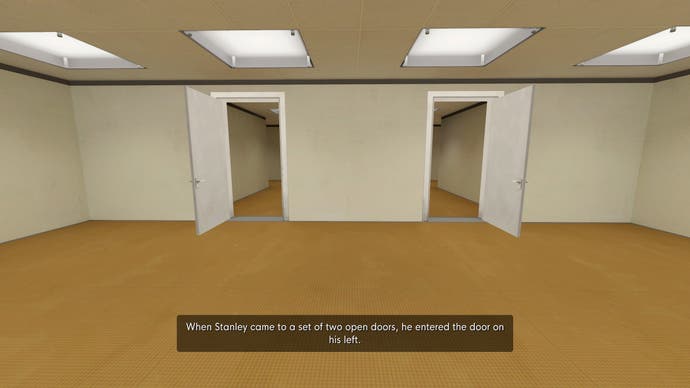
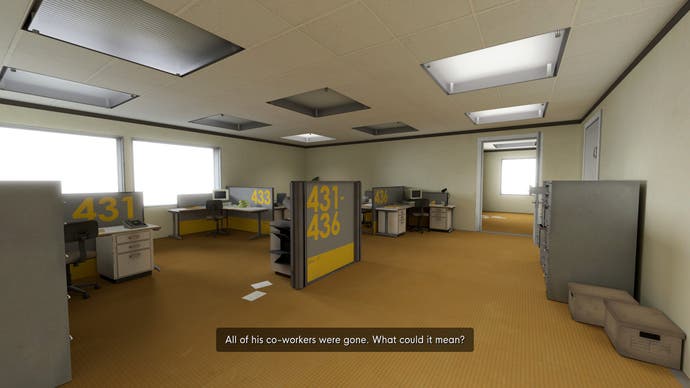
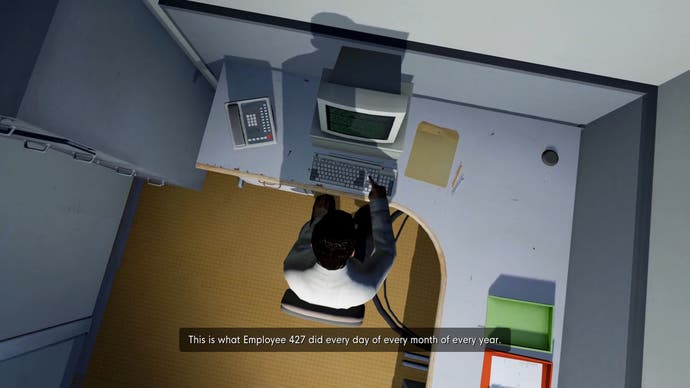
In fact, I think I have played it. The 2013 office-based narrative mystery game The Stanley Parable is probably as close as anything will ever come to being Severance: The Game. In it, you are a character called Stanley who performs an absurdly mundane data entry task day in, day out, without complaint. That is until we, the player, turn up to control him, playing the part of his long dormant free will, I suppose. We start disobeying the Narrator-delivered rules and seeing what happens. It is parodic, mysterious, and unexpectedly funny. It’s everything Severance also is.
There’s a reason for this: Dan Erickson, the creator of Severance, was directly influenced by The Stanley Parable when writing the show, among influences from a dozen other things. So baked into that show’s DNA is that video game. Erickson doesn’t expand on how, or in what ways the game influenced the show, but I don’t know if he really needs to. To me, the blueprint of The Stanley Parable is plain in Severance to see.
I love this. I love that we’re talking about the creator of a major TV show being influenced by a relatively niche (because it’s far from mainstream) game. I love that we live in a world where the people making major TV shows know games well enough that they would play The Stanley Parable at all. And I love that it’s games influencing the creation of TV shows rather than only being adapted for them. The incredible success of The Last of Us and Fallout TV shows, and the animated series of Castlevania and soon Devil May Cry, have proved video games’ value in financial terms, as intellectual property ripe for adaptation. But with Severance and The Stanley Parable, it feels as though games are also asserting themselves as a cultural force, and that they’re justifiably being respected as one.
